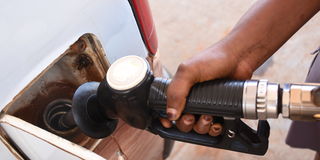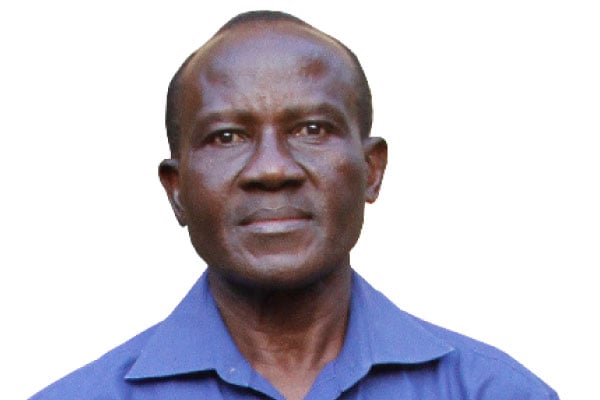Prime
Dealers hoarding fuel to keep prices high – Parliament

Whereas Uganda Bureau of Statistics has indicated a drop in transport fares over the last two months, fuel prices have gone up, threatening to distablise the price of different commodities and services. PHOTOs | Edgar R Batte
What you need to know:
- Three weeks since the sharp rise in fuel prices due to a supply shortage occasioned by the fuel truck drivers’ strike at the Malaba border, a litre of petrol is still retailing at an average Shs5,000, up from Shs4,500 before the stalemate.
Members of Parliament (MPs) have accused fuel retailers of hoarding fuel, which has kept the pump prices in the country high despite the easing of the border stalemate.
Three weeks since the sharp rise in fuel prices due to a supply shortage occasioned by the fuel truck drivers’ strike at the Malaba border, a litre of petrol is still retailing at an average Shs5,000, up from Shs4,500 before the stalemate.
An investigation by Parliament Committee on Tourism, Trade and Industry on the fuel crisis in the country, however, found that despite the border crisis, more fuel trucks entered the country in January as compared to those in December 2021.
Committee chairperson Mwine Mpaka (Mbarara South) told Parliament that whereas the strike at the border impacted the flow of cargo, it is not clear how many of the trucks involved in the strike were transporting fuel.
“According to the URA commissioner for enforcement, URA has cleared more fuel trucks in January than it did in December. Between December 1 and December 31, 2021, URA cleared on average 122 fuel trucks per day. By January 22, 2022, the day of the committee oversight visit, URA had cleared on average 126 trucks in January, which is more than the daily average of 22 fuel trucks cleared per day in December and several months before the crisis,” the report states.
According to the report, Vivo Energy imported 31 million litres while Total brought in 22 million.
“What this means is that if there is hoarding, it is Vivo and Total because they are the ones importing a significant amount of fuel,” Mr Mpaka said.
“With these statistics it is clear that fuel is actually getting into the country but some fuel importing companies and fuel stations are taking advantage of the current situation to hoard and sell the fuel expensively,” the report states
Efforts to reach Mr Valery Okecho, the Vivo energy spokesperson, were futile as he didn’t answer our calls.
Mr Ivan Muzahuzi, the corporate communication officer at TotalEnergies, yesterday declined to comment on the proceedings in Parliament and advised Daily Monitor to send an email to the managing director and request for a formal interview on the matter. However, by last evening, the managing director had not responded to the email.
The committee also accused the Energy ministry of poor management of the national oil reserves that were depleted at the time of the crisis. The report indicated that Uganda’s reserve capacity of 30 million litres, which would facilitate the county’s daily demand of 6.5 million for only four days, is too small.
Officials from Uganda National Oil Company (UNOC), the government company running the reserves, told Parliament that they did not have resources to replenish the reserves.
“It is pertinent to note that Uganda has no fuel reserves. This renders it vulnerable to crises as these, being that the country is landlocked. Also, UNOC has to up its effort to be up to its task, being a State enterprise; it should jealously guard the interests of government and Ugandans as a whole,” the report states.
According to report, the crisis was further compounded by the depletion of super petrol, scheduling challenges, increase in demand from other countries and accumulated backlog in both Kenya and Tanzania.
Uganda receives 95 per cent of its petroleum products through Kenya, while others come through Tanzania.
Members of Parliament, however, accused the ministry of Energy of doing its job and leaving Ugandans at the mercy of a free market, with minimal regulation and interventions.
Deputy Speaker Anita Among said government departments should harmonise their policies to avoid creating artificial crises.
“People who are hiking the prices, they must face the law…We want you to do an operation on fuel stations that have hiked prices. We have security operatives, and make sure the prices come down where they are supposed to be and the 10-day reserve is there. Do not just sit and say they will come down,” she said.
Govt response
The Ministry of Energy and Mineral Development said prices should normalise in one week. “Pump prices should return to normal by February 10.
The country suffered a shocking rise of the fuel price, which affected almost all the economy and we are working to revive the economy as a part of the post Covid recovery,” State minister for Minerals Peter Lokeris told Parliament. He further said should the high prices persist, the Energy minister will invoke powers as enshrined in the Petroleum Supply Act to punish the dealers.




